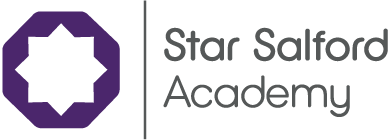Curriculum
History
Why study History?
Understanding past events and people and their significance gives students a better insight into the world around them. We believe in the importance of not just learning history but learning from history. The study of History equips pupils with the ability to critically analyse source material, assess the merits of different arguments, hone their debating skills, and recognise bias and propaganda.
How will I study history?
Pupils study History through big enquiry questions. Each enquiry covers a sequence of lessons. At the end of that sequence of lessons pupils are equipped to formulate their own answer to the enquiry. These are genuine historical debates amongst academic historians. Pupils learn historical concepts that are revisited regularly in different periods of time, locations and people allowing pupils to gain a deeper understanding. Alongside this, pupils learn to be historians developing their disciplinary knowledge understanding methods of historical enquiry, how evidence is used to make historical claims and understand why there are different interpretations of the past.
What will I study at key stage 3?
In Year 7, pupils explore historical enquiries that span the Roman to Tudor period. This includes:
- Christianity and Islam: How did the two biggest religions in the medieval world coexist?
- How did the Romans establish rule in England after failing twice?
- Did the Normans bring a ‘truck load’ of trouble to England in 1066?
- What was the significance of Magna Carta?
- Did the Peasants’ Revolt achieve nothing?
- Six truces, five kings, two dynasties, one throne: what were the impacts of the Hundred Years War?
- Was there a Mid Tudor Crisis or was it a period of trauma and survival?
In Year 8, pupils move through the study of Mughal India and end at Britain’s industrial revolution. Pupils explore enquiries that cover:
- Who was the greatest Mughal of them all?
- Were the ‘Divine Right of Kings’ – the will of the people or the will of God?
- Did enlightenment cause revolution?
- Did the abolition of slavery end slavery?
- Why is the British Empire on trial?
- Which better describes the Industrial Revolution: Dark satanic mills’ or ‘progress and improvement?’
In Year 9, pupils move into the twentieth century to present day. Historical enquiries explore:
- Was the First World War worth winning?
- How far did new ideas cause conflict?
- Why were the Nazis able to implement the Final Solution?
- How democratic was Britain by 1930?
What will I study at key stage 4?
At Key Stage 4, pupils take a Modern depth study on Germany 1890-1945. Pupils study Weimar and Nazi Germany. This covers the Weimar Republic, Hitler’s rise to power, Nazi control and dictatorship, life in Nazi Germany.
As a thematic study, pupils study Migration, empires, and the people c790 to the present day. This explores ideas about:
- Conquest and settlement.
- The birth of British identity, British colonisation, and expansion.
- Migration to and from Britain.
- The role and events in the development of empire and British identity.
As a British depth study, pupils explore early Elizabethan England. They focus on the Queen, government and religion, challenges to Elizabeth I at home and abroad, and Elizabethan society and the age of exploration. They will also explore a specific Elizabethan site in depth focusing on its historical context and examining the relationship between a specific place and associated historical events and developments.
In addition, pupils undertake a period study focusing on superpower relations and the Cold War. This covers the origins of the Cold War crises, attempts to reduce tension between the East and West and the collapse of Soviet control of Eastern Europe.
Assessment at key stage 4
History AQA 8145
| Overview | Focus |
|---|---|
|
Section A: Germany, 1890–1945: Democracy and dictatorship Section B: Conflict and tension between East and West, 1945–1972 |
| Overview | Focus |
|---|---|
|
Section A: Elizabethan England c1568-1603 Section B: Migration, empires and the people c790 to the present day |
Enrichment
The department offers a range of educational visits throughout the year such as a visit to Quarry bank mill, The Liverpool Slavery Museum, The Imperial War Museum and an Elizabethan historical site. In lessons, History is brought to life through re-enactments, the exploration of artefacts, original film footage and solving historical mysteries. d model making. Pupils can take part in school-wide competitions to increase their engagement and enhance their subject knowledge. The department also puts on live History exhibitions brining to life stories of the past through the display of food, culture, architectures, clothing, and art. Intervention sessions to consolidate prior learning and ensure maximum progress are at the heart of our delivery model.
Careers
The study of History can lead to future careers ranging from Researcher, Museum Archivist and Journalist to Librarian, Civil Servant, Business Consultant and Editor. Famous History graduates include Louis Theroux (documentary filmmaker, author), Jonathan Ross (TV presenter), Joe Biden (US President) and Gordon Brown (ex-British Prime Minister).
